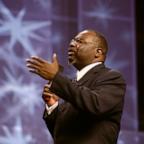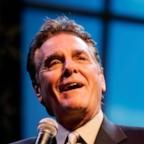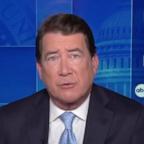Bank relied on Trump's financial statement to secure loan
Deutsche Bank relied on the strength of Donald Trump's "financial profile" when deciding to loan the former president roughly $125 million related to the purchase of the Trump National Doral golf club in 2011, according to retired Deutsche Bank executive Nicholas Haigh.
Haigh testified that because Trump used the golf course and spa as collateral -- relatively "unusual" assets that Deutsche Bank would struggle to sell in the event of a foreclosure -- the bank leaned on the strength of Trump's larger portfolio.
"[Trump] is guaranteeing he will repay our loan -- all the money due on the loan," Haigh said about the terms of the loan. "He is also guaranteeing if the result is losing money, he will pay the cost of that shortfall."

Haigh said that he personally reviewed Trump's statement of financial condition when determining whether to sign off on the loan.
"My conclusion was the client owned a lot of real estate, which was not surprising," Haigh said about his findings after reading Trump's financial statement.
Previous witnesses in the trial have offered insights into how Trump's annual financial statement was drafted, finalized, and provided to banks to fulfill loan obligations. Haigh is the first witness to testify from the perspective of the banks, which considered the statements when deciding whether to do business with Trump.




